F-3

Construction and Launching
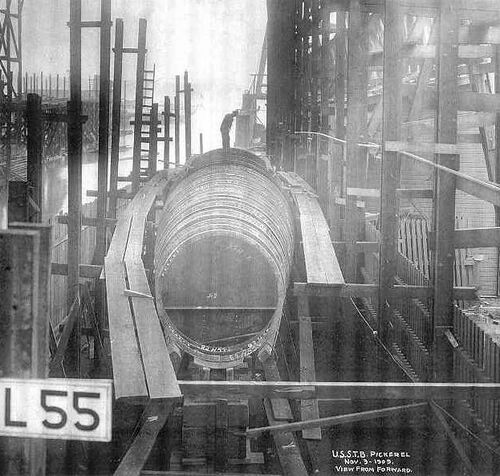
Photo courtesy of Bill Lightfoot, author of Beneath the Surface.
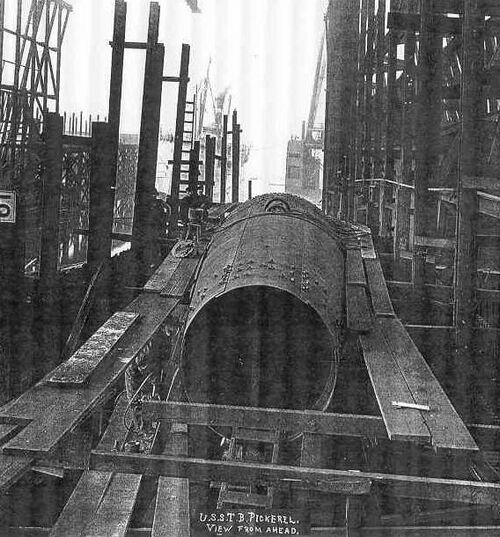
F-3 with hull plates riveted to the framework. Photo at the Moran Company yard, approximately 1910.
Photo courtesy of Bill Lightfoot, author of Beneath the Surface.
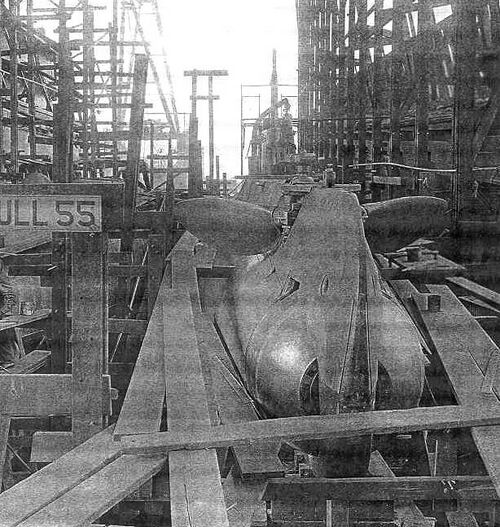
F-3 nearly finished. The rotating bow cap for the torpedo tubes has been installed, along with the bow planes and most of the superstructure. September 30, 1911.
Photo courtesy of Bill Lightfoot, author of Beneath the Surface.
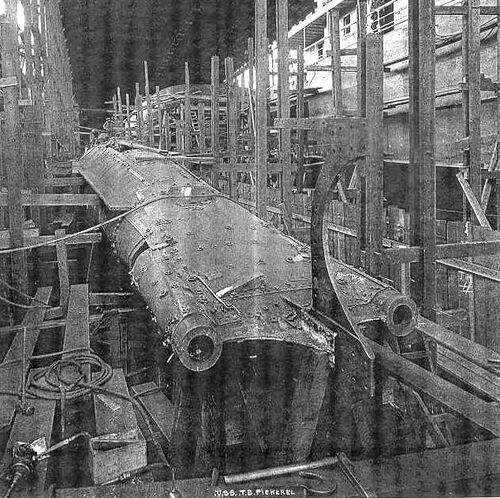
The stern of the F-3 is shown here. The propeller shaft tubes can be clearly seen, along with the support structure for the rudders. A superstructure skeg would be built that connects the rudder structure to the aft deck.
Photo courtesy of Bill Lightfoot, author of Beneath the Surface.
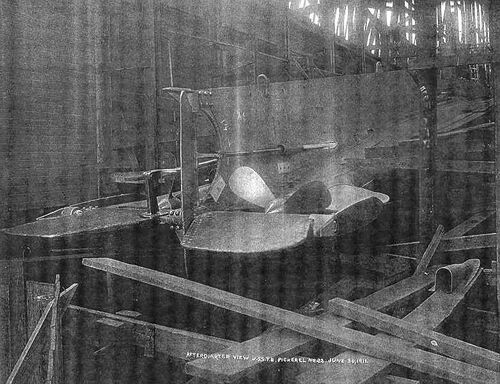
The F-3's stern shown nearly complete, June 30, 1911. Both propellers are installed, along with the skeg, the rudders, and the stern diving planes.
Photo courtesy of Bill Lightfoot, author of Beneath the Surface.
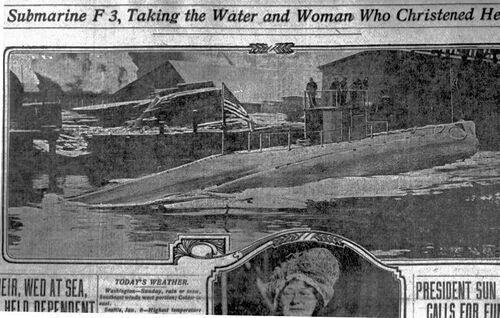
The launch of the F-3 as covered by the Seattle Post-Intelligencer, January 6, 1912.
Image courtesy of Bill Lightfoot, author of Beneath the Surface.
Builder's Trials, Elliot Bay
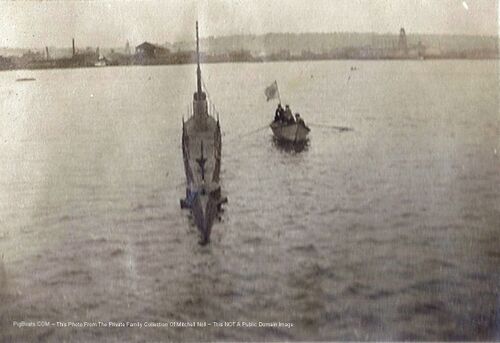
Photo from the private family collection of Mitchell Noll.

F-3 on Elliot Bay off the Seattle waterfront. The submarine is about to dive or has just surfaced from a trial dive. The yard crew making the ship's trials can be seen on deck talking with the men in the skiff. Seen behind the submarine to the right is Queen Anne Hill north of the present-day location of the Space Needle. To the left of the bridge fairing is Magnolia Bluff and West Point Lighthouse.
Photo from the private family collection of Mitchell Noll.
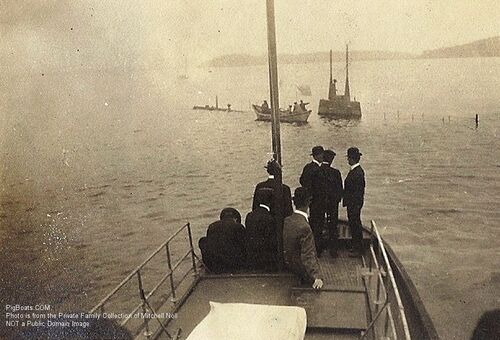
F-3 on Elliot Bay off the Seattle waterfront. The boat is surfacing from a static (non-moving) dive. She has a slight up angle by the bow. The operation is observed by officials from the shipyard from a launch. A skiff is attending the submarine. Seen behind the submarine to the right is Queen Anne Hill north of the present-day location of the Space Needle. Behind the periscopes is Magnolia Bluff and West Point Lighthouse.
Photo from the private family collection of Mitchell Noll.
Builder's Trials, Run to Port Townsend
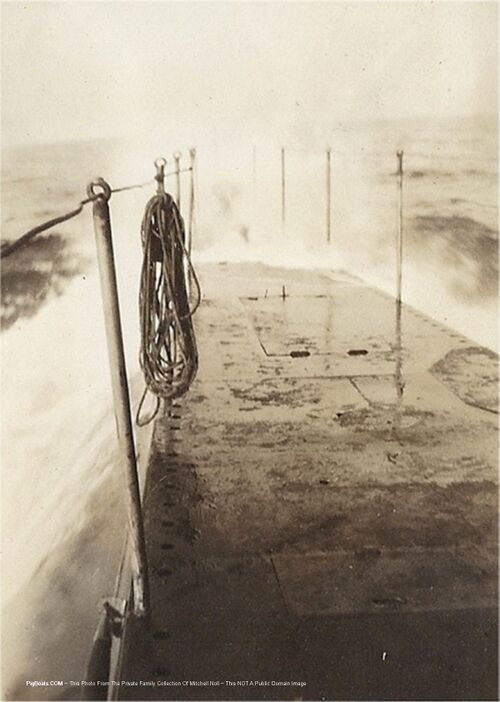
Photo from the private family collection of Mitchell Noll.

A view from the bridge as F-3 makes her way up Puget Sound to Port Townsend, WA. She is running at a good clip judging by the bow wave.
Photo from the private family collection of Mitchell Noll.
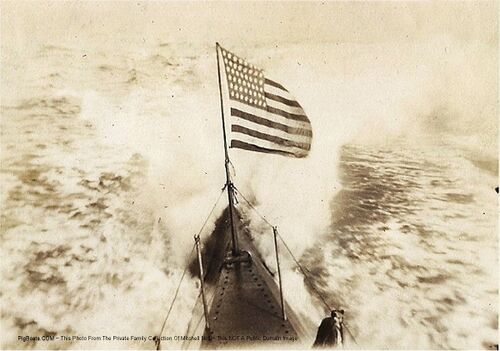
The view looking aft on the F-3 on her run north from Seattle up to Port Townsend. The trademark white exhaust from the twin NELSECO diesels can be seen coming from the exhaust ports on either side of the hull below the flag staff.
Photo from the private family collection of Mitchell Noll.
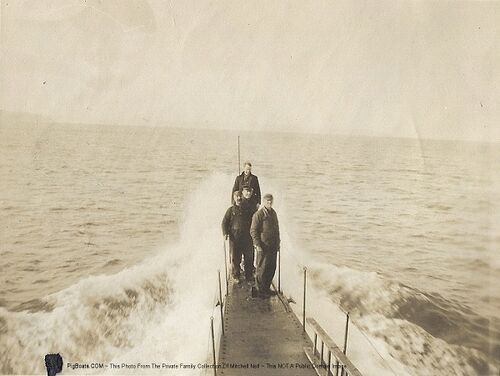
Trial crew from the Moran Company pose on the bow while on the trip north to Port Townsend, summer of 1912. The headland seen on the left is Point No Point on the Kitsap Pennisula. The man closest to the camera is Julius Francis Rausch Jr, an employee of Moran and original owner of these family photos. Since she had not yet been turned over to the Navy, there would have been few, if any, Navy personnel aboard for this trip. The builder is responsible for putting the boat through its initial trials to ensure that it will operate as intended and that it could meet the specifications spelled out in the Navy contract.
Photo from the private family collection of Mitchell Noll.
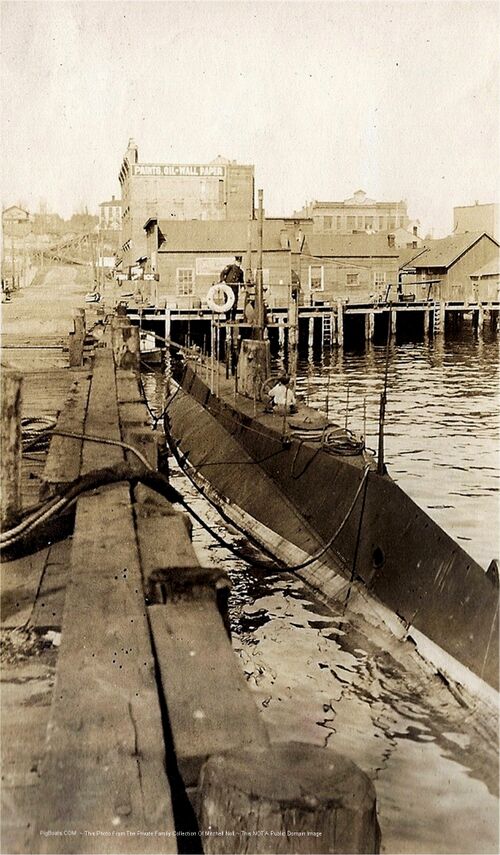
F-3 moored to a dock on the Port Townsend waterfront, likely the old ferry dock at the foot of Quincy St. The town has changed little since this photo was taken in 1912. The building in the background that says "Paints, Oil, & Wall Paper" still exists today, with the same facade. On the boat the framework for the canvas bridge cover can be seen. An unidentified Chief Petty Officer is seen on the bridge structure. He is aboard to observe the trials on behalf of the Navy.
Photo from the private family collection of Mitchell Noll.
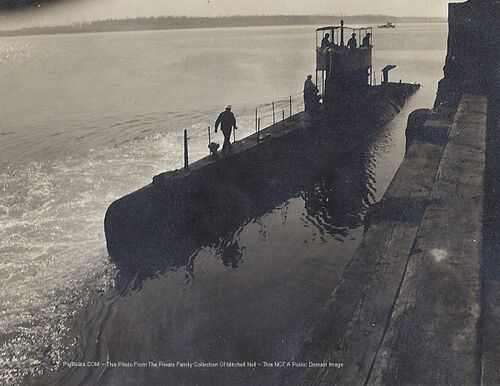
F-3 backs away from a dock on the Port Townsend waterfront, summer of 1912. She is doing this on battery power since the diesel engines are direct drive and only go forward. The canvas bridge cover has been erected on the pipe framework at this time. In the background is seen the north end of Marrowstone Island across Port Townsend Bay. View is looking south.
Photo from the private family collection of Mitchell Noll.
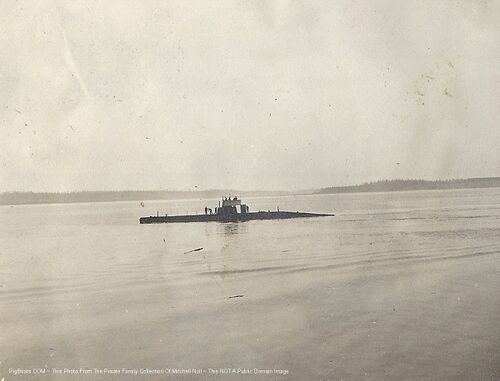
The F-3 in Port Townsend Bay while under builder's trials, summer of 1912. She is running on battery power as there is no diesel exhaust present. In the background is seen the north end of Marrowstone Island to the left and on the right is Indian Island across Port Townsend Bay. View is looking south.
Photo from the private family collection of Mitchell Noll.
Measured Mile Run and Port Townsend Trials
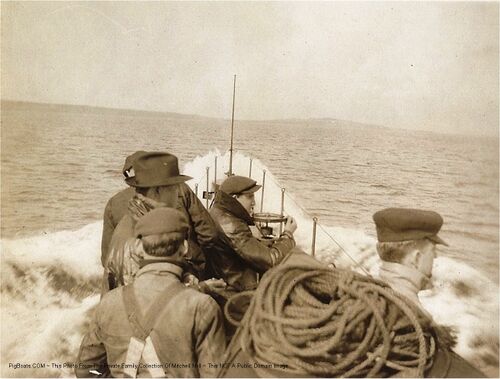
Photo from the private family collection of Mitchell Noll.

The F-3 running the measured mile off Indian Island. The trial crew are logging information from the stop watches. The second man from the right is Julius Francis Rausch Jr. Seen in the distance is the Kitsap Pennisula and Port Townsend. The view is looking north.
Photo from the private family collection of Mitchell Noll.
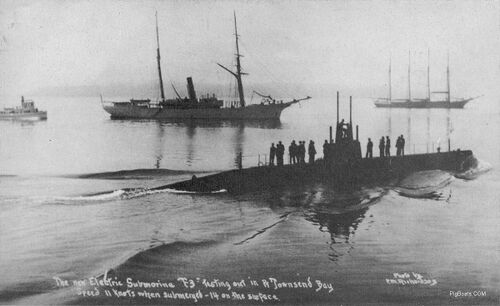
F-3 on Port Townsend Bay for her performance trials. Behind is the U.S. Revenue Cutter Rush and a four masted schooner. Photo date is June 15, 1912. Port Townsend is a town about 30 miles north of Seattle.
Photo from the Jefferson County Historical Society.

F-3 on Port Townsend Bay for her performance trials. The view is looking almost due west, June 15, 1912. Most of the trial crew are topside.
Photo from the Jefferson County Historical Society.
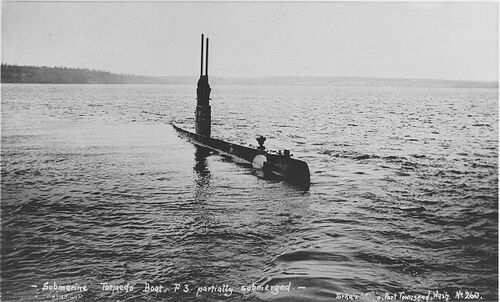
F-3 conducting a static dive in Port Townsend Bay, June 15, 1912 as part of her performance trials. There appears to be two men still on the top of the conning tower fairwater so a full dive is not anticipated.
Photo from the Jefferson County Historical Society.
Bremerton Drydocking
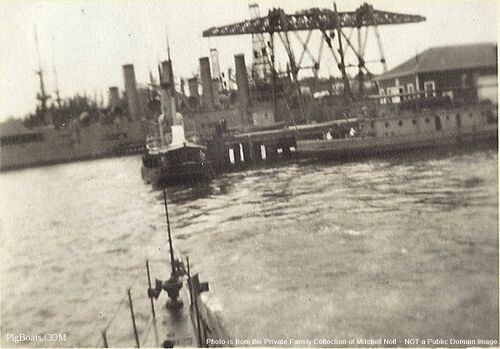
Seen in the background several armored cruisers are moored in the yard. It is a good possibility that they are the USS Pennsylvania (Armored Cruiser No. 4) and the USS Charleston (Cruiser No. 22) of the Pacific Reserve Fleet and also served as a receiving ship at Puget Sound from November 4, 1912 to January 10, 1916. Pennsylvania was at Bremerton having her foremast changed out and replaced by the new cage mast. The second cage mast in unknown. Charleston is between them.
The floating derrick was constructed at Mare Island and was of the same design and construction, only just a little bit smaller than the one they had constructed to go to Pearl Harbor.
Photo is from the private family collection of Mitchell Noll.
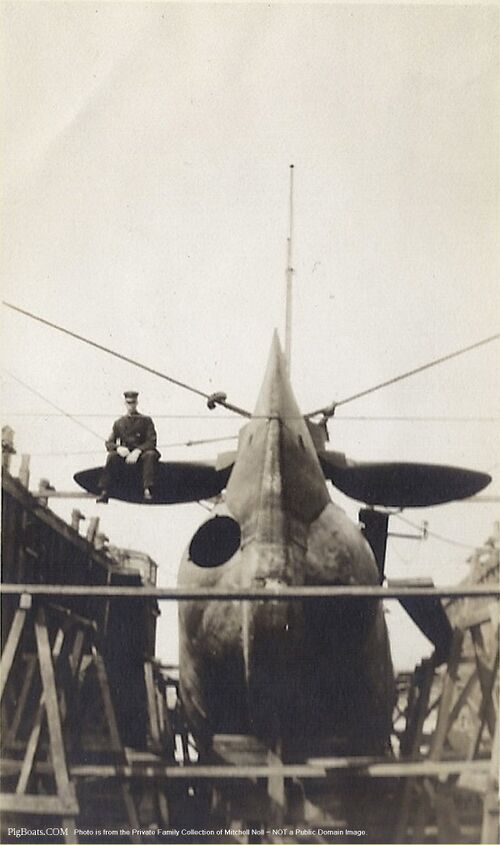
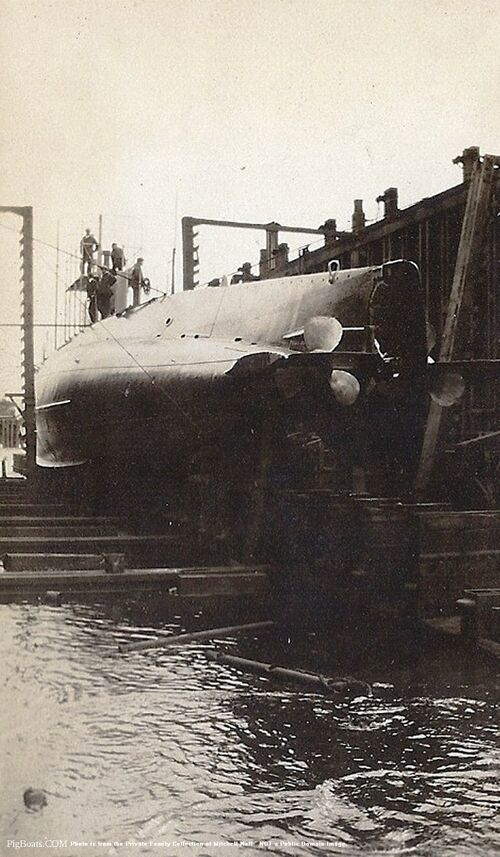
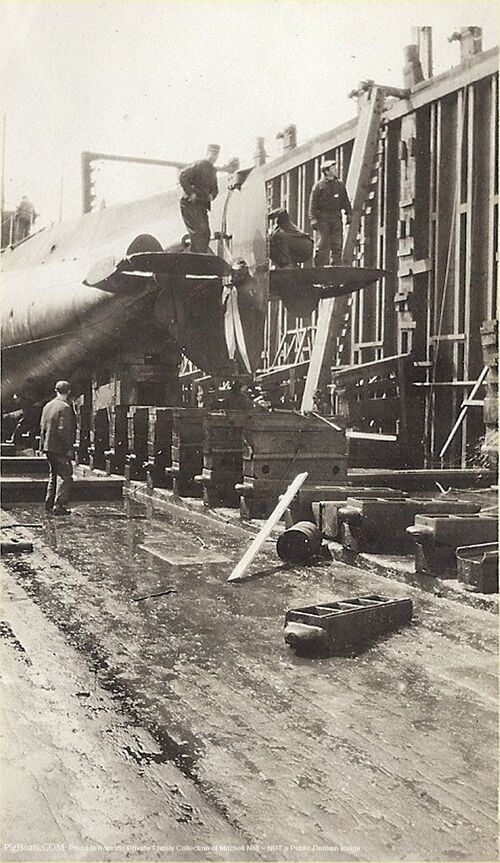
Duty in Hawaii
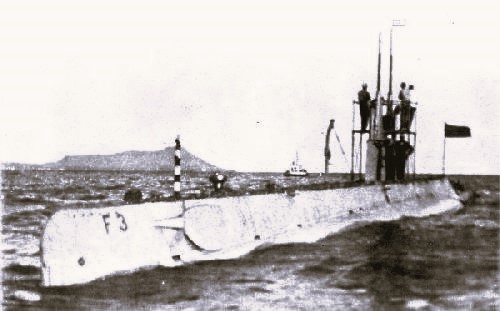
Photo in the private collection of Ric Hedman
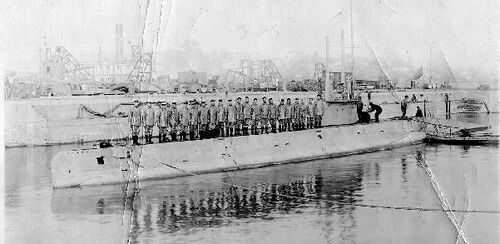

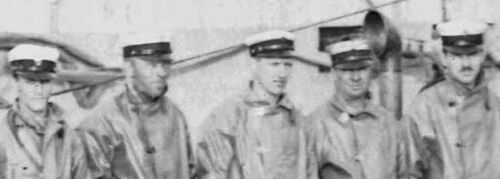
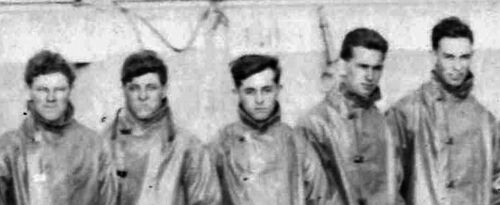
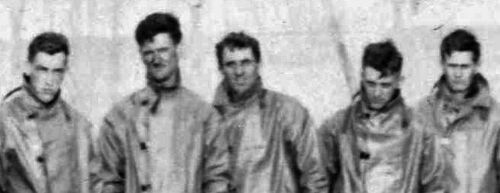
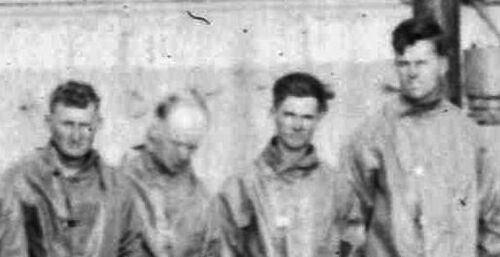
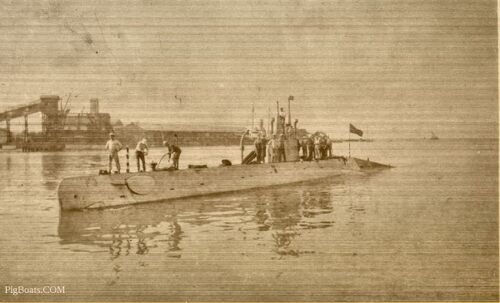
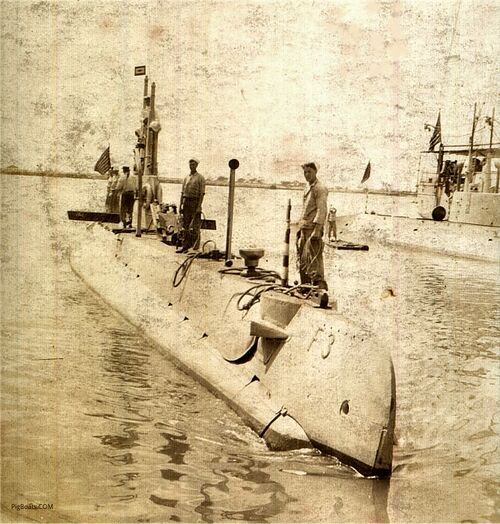

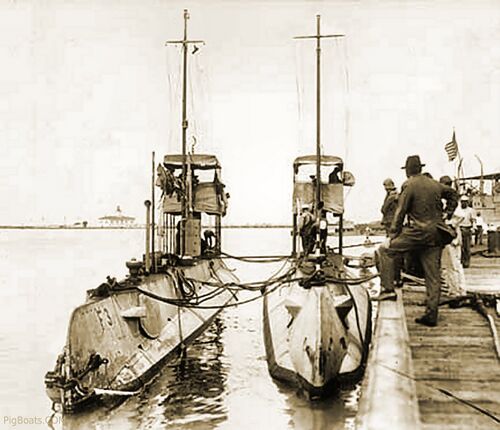
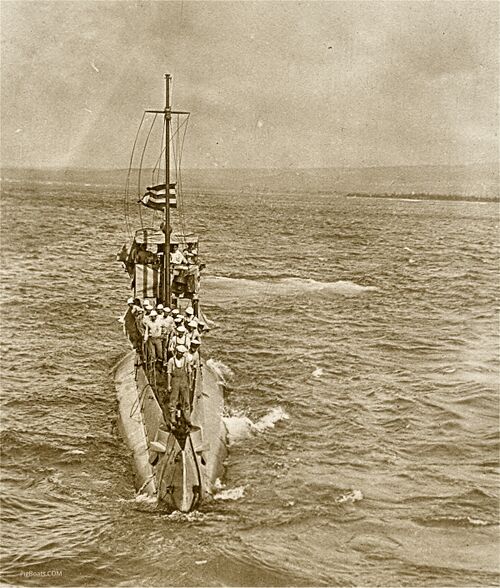
Return to California

Photo in the private collection of Ric Hedman
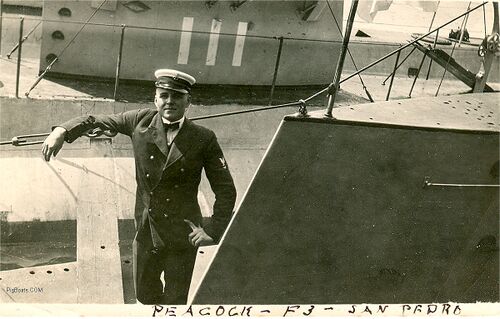
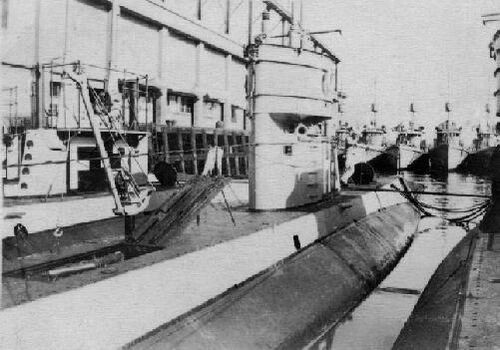
George Glover Photo Collection
SPECIAL NOTE. The Glover photos are the personal property of the Glover/Loushin family and MAY NOT BE USED OR REPOSTED without their specific written permission.
Page created by:
Ric Hedman & David Johnston
1999 - 2023 - PigBoats.COM©
Mountlake Terrace, WA, Norfolk, VA
webmaster at pigboats dot com